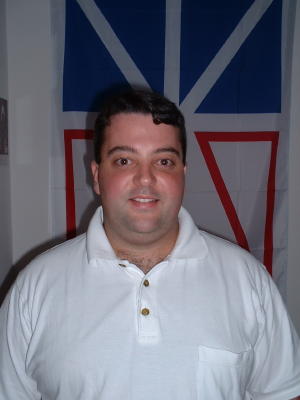Okay, I can honestly say that I have taken an active role in our student associations within my program and department. My CV is littered with organizational responsibilities and committee assignments, not because I wanted to have a strong service aspect to my CV, but because I honestly believe that to be a good citizen within an organization you should give as much back as you take from that orgaization. In my three years here at UGA I feel that I have gotten a tremendous amount from those around me and have tried to give back just as much.
In this year, my final year of my Ph.D. program, I've taken a step back from these responsibilities. I was fortunate enough to be awarded the dissertation completion assistantship, so my only formal duties this year is to complete my dissertation. I'm also fortunate enough to have already collected the vast majority of my data, including:
- 35 interviews from twelve different students
- 5 interviews with five different teachers and administrators
- 36 hours of videotaped obserations of students engaged in their virtual school courses
- 4 different surveys completed by all twelve students
- 96 weekly journal entries from nine different students
- 27 observations of synchronous classes from thirteen different courses
- 1 observations of a synchronous tutorial session
- 15 reviews of different asynchronous course systems
Having collected all of that, I now must turn my attention to finally finishing my transcribing of interviews and field notes, along with reviewing the videotaped observations. Then I have to write the damn thing - although I have the majority of chapters one (statement of the problem), two (literature review), three (methodology), and four (context) already completed. So really I have to write the analysis of my data, along with my conclusions and implications. And I have the next eight months to do it. [Note that by the time December roles around, I imagine many of my posts will be about my dissertation process.]
But that brings us back to my service component. Two years ago (or at the end of my first year), the College of Education re-organized and my department merged with another department within the COE. Both departments, while having many scholarly points for collaboration, had very different institutional cultures - one had a strong sense of community while in the other individual programs operated in a much more autonomous manner. The merger of these two cultures has interesting to say the least, and as one of the student leaders within the department it was my job to try and bring the good from both departments to the benefit of the students, while hoping that the negative aspects would not spread. You'd have to ask others how successful I've been in that respect.
I can say that my own experience has changed a great deal. When I first came to this university, even before I applied to be a student here, I sensed and was witness to a strong community between students and leaders in my field (i.e., our faculty here). While the leaders in my field are still here and still work in amazing ways with their students, that sense of community has slowly disappeared. Maybe it is a function of people simply being more busy or maybe it is a function of the size of the new department (which is actually the size of many of the colleges of education that you would find at other institutions).
As I reflect upon this, watch the new changes that another academic year brings, and see a new group of students take upon leadership roles within the various student organizations, I wonder at what point do I simply stop fighting for a community within our program? At what point do I just collaborate with those (both students and faculty) who I have built wonderful relationships with, and work with my committee to get the big "D" done and get out the door? Or do I continue to fight to try and hold on to what was once there, hoping that it will make the experiences of those coming behind me as rich and rewarding as mine has been? Don't get me wrong, I don't believe that the quality of our program has changed or that the quality of people in our program (both students and faculty) have changed. Just that little thing that changes the "I have to go to the office today" to "I want to go to the office today".
I don't ask these questions rhetorically, but of those who have gone through institutional change to chime in with their own opinions. Particularly if you have advice for a student leader in this regard, both for my own actions for the remainder of my time here and because I hope to have students of my own one day soon and I'd like to be able to give them guidance on a wide range of topics, one of which might be this one.
Tags: graduate student, graduate students, graduate school, higher education, education



